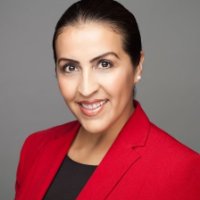About this episode:
 Our guest this episode, patient advocate Dorelia Rivera, improves access to healthcare services and clinical trials for the underrepresented, including her own Hispanic community. Her advocacy ranges from community volunteer work, to jobs for a state health and human services department, a payor, and a rare disease drug company. She advocates on Capitol Hill and served on the National Institutes of Health Advisory Council on Diversity
Our guest this episode, patient advocate Dorelia Rivera, improves access to healthcare services and clinical trials for the underrepresented, including her own Hispanic community. Her advocacy ranges from community volunteer work, to jobs for a state health and human services department, a payor, and a rare disease drug company. She advocates on Capitol Hill and served on the National Institutes of Health Advisory Council on Diversity
She’s also a mother of a child with a rare disease. Rivera’s daughter has an ultra-rare condition, NOMID–neonatal onset multisystem inflammatory disease. When she was first diagnosed, the doctor said she wouldn’t live to be 10 years old. Today, she is thriving teenager, thanks to an NIH clinical trial and her mother’s persistence.
Rivera talks about her daughter and her advocacy for underserved communities. Like those with rare diseases, racial and ethnic minorities are too often overlooked.
“Health disparities are real,” she says. The COVID-19 pandemic and the current protests are driving that home, she adds. “It’s painfully, painfully, painfully evident.” Changes need to be made concurrently across several areas, including insurance coverage, access to care, access to clinical trials, and a greater focus on the social determinants of health. “Healthcare should be a right, not a privilege.”
In terms of clinical trials, sponsors need to understand the barriers many patients–especially those in minority communities–face. Someone who needs to leave work to participate in a trial may not have a job when they return. Too often, trial sponsors aren’t flexible in addressing the obstacles potential participants face. If sponsors want to improve diversity, they need to level the playing field. “They have to meet the families where they are.”